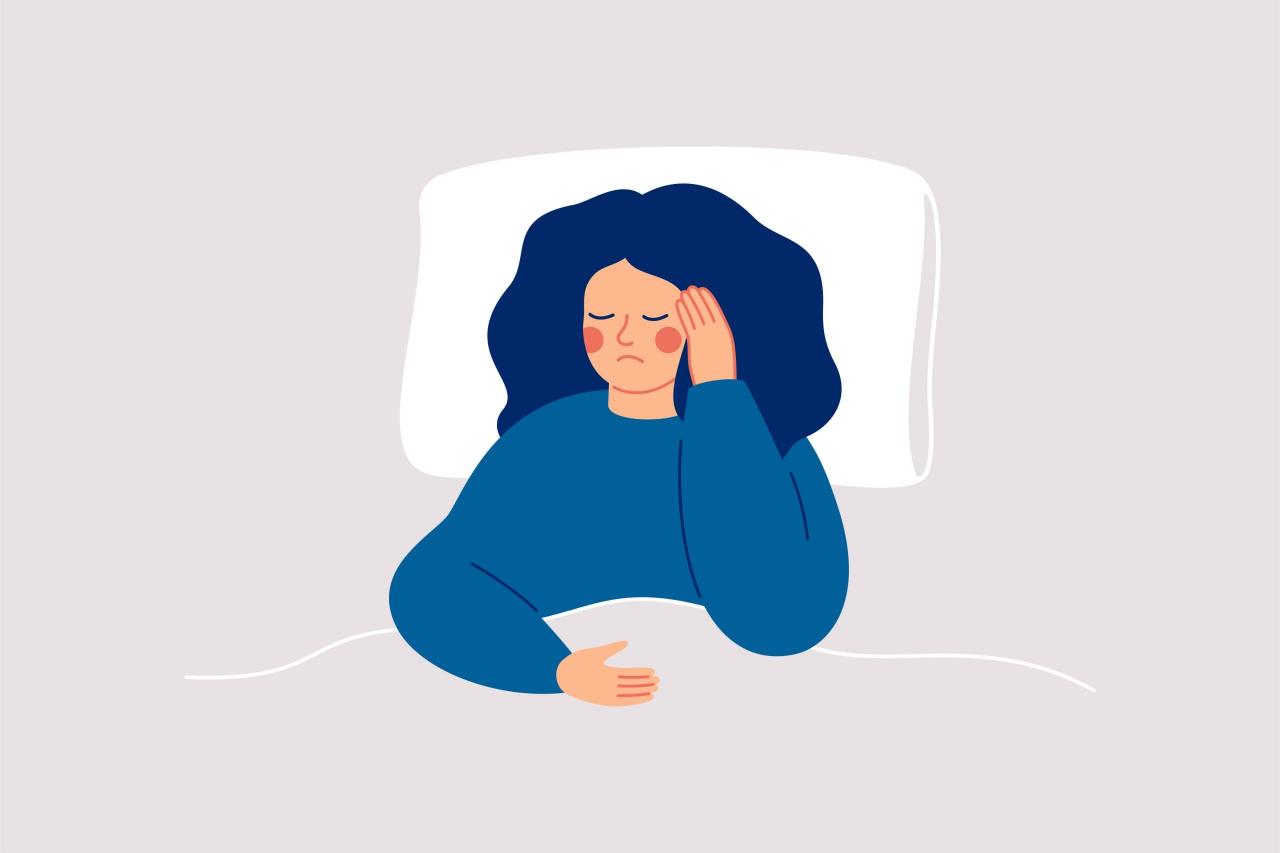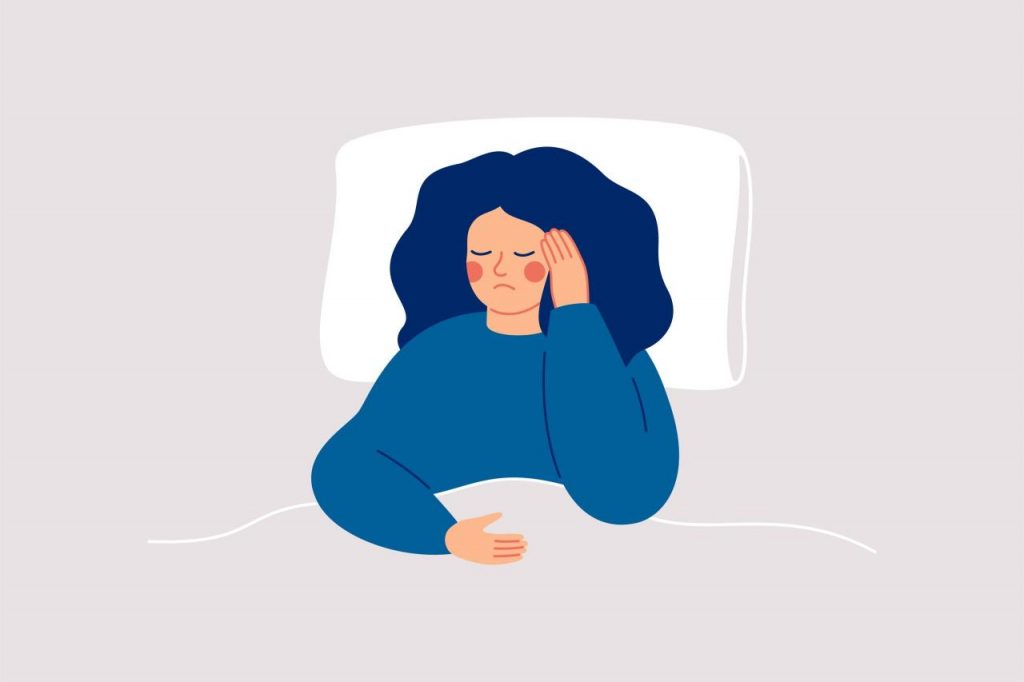In the quiet hours of the night, as the world drifts off to dreamland, many people are left tossing and turning, unable to find the elusive bliss of restful sleep. Countless individuals suffer from sleep disorders, disrupting their nights and leaving them tired and irritable during the day. Understanding common sleep disorders can shine a light on these troublesome conditions, turning the darkness of sleepless nights into knowledge and, hopefully, peaceful slumber.

Types of Sleep Disorders
There are several that can impact a person’s ability to get a good night’s rest. These disorders can range from common issues like insomnia to more serious conditions like sleep apnea. Understanding these different sleep disorders is key to finding the right treatment and improving overall sleep quality.
**Some common include:**
- Narcolepsy
- Insomnia
- Restless Leg Syndrome
- Sleep Apnea
It’s important to consult with a healthcare provider if you suspect you may have a sleep disorder. They can help diagnose the issue and provide appropriate treatment options to help you get the restful sleep you need.
– Exploring the spectrum of common sleep disorders
From insomnia to sleep apnea, the world of sleep disorders is vast and varied, affecting millions of people worldwide. Each disorder presents its own unique challenges and symptoms, making it crucial to understand the spectrum of common sleep disorders.
One of the most prevalent sleep disorders is insomnia, characterized by difficulty falling or staying asleep. Individuals with insomnia often experience daytime drowsiness, irritability, and difficulty concentrating. Treatment for insomnia may include cognitive behavioral therapy, medication, or lifestyle changes.
Sleep apnea is another common disorder that involves pauses in breathing during sleep. This condition can lead to a variety of health problems, including high blood pressure, heart disease, and stroke. Treatment for sleep apnea often involves the use of a continuous positive airway pressure (CPAP) machine to help keep the airway open during sleep.
Understanding Insomnia
Insomnia is a common sleep disorder that affects millions of people worldwide. It is characterized by difficulty falling asleep, staying asleep, or waking up too early and not being able to fall back asleep. There are two types of insomnia: acute insomnia, which lasts for a short period of time, and chronic insomnia, which occurs at least three nights a week for three months or longer.
There are many factors that can contribute to insomnia, including stress, anxiety, depression, medical conditions, medications, and lifestyle choices. It is important to identify the underlying cause of insomnia in order to effectively treat it. Some common treatment options for insomnia include cognitive-behavioral therapy, medication, relaxation techniques, and lifestyle changes.
It is essential to prioritize good sleep hygiene practices in order to improve the quality of sleep and manage insomnia effectively. This includes creating a comfortable sleep environment, maintaining a regular sleep schedule, avoiding stimulants like caffeine and electronics before bedtime, and practicing relaxation techniques like deep breathing or meditation. By understanding the causes and treatment options for insomnia, individuals can take control of their sleep and improve their overall quality of life.
– Delving into causes, symptoms, and treatment options
Sleep disorders are common conditions that can affect anyone, regardless of age or gender. Understanding the causes, symptoms, and treatment options for these disorders is essential in order to improve sleep quality and overall health.
- Causes: Sleep disorders can be caused by a variety of factors, including stress, anxiety, depression, medical conditions, and lifestyle choices. Genetics and environmental factors can also play a role in the development of sleep disorders.
- Symptoms: Common symptoms of sleep disorders include difficulty falling asleep, staying asleep, or waking up too early. Other symptoms may include daytime fatigue, irritability, and difficulty concentrating.
- Treatment Options: Treatment for sleep disorders can vary depending on the specific condition and underlying causes. Some common treatment options include lifestyle changes, therapy, medications, and in severe cases, surgery.
It is important to consult with a healthcare professional if you suspect you have a sleep disorder, as proper diagnosis and treatment can help improve your quality of life and overall well-being.
The Impact of Sleep Apnea
Sleep apnea is a common sleep disorder that affects millions of people worldwide. It is a condition characterized by pauses in breathing during sleep, which can lead to a variety of health issues if left untreated. There are two main types of sleep apnea: obstructive sleep apnea, which occurs when the throat muscles relax and block the airway, and central sleep apnea, which is caused by a problem with the brain’s signaling to the muscles that control breathing.
Some of the common symptoms of sleep apnea include loud snoring, daytime fatigue, morning headaches, and irritability. If left untreated, sleep apnea can increase the risk of high blood pressure, heart disease, stroke, and other serious health conditions. Diagnosis of sleep apnea typically involves a sleep study, where a person’s breathing patterns and other factors are monitored while they sleep.
Treatment for sleep apnea often involves lifestyle changes, such as losing weight and avoiding alcohol and sedatives before bedtime. In more severe cases, a continuous positive airway pressure (CPAP) machine may be prescribed to help keep the airway open during sleep. Surgery may also be an option for some individuals with sleep apnea, depending on the underlying cause of the condition.
– Recognizing the symptoms and importance of seeking medical help
When it comes to common sleep disorders, it’s important to recognize the symptoms so you can take the necessary steps to seek medical help. One of the most prevalent sleep disorders is insomnia, which can manifest in difficulty falling asleep, waking up frequently during the night, or waking up too early in the morning. Another common sleep disorder is sleep apnea, where breathing pauses during sleep, leading to disrupted sleep patterns and potential health risks.
Other symptoms of sleep disorders can include excessive daytime sleepiness, loud snoring, leg movements during sleep, and difficulty concentrating during the day. If you or a loved one is experiencing any of these symptoms, it’s crucial to consult a healthcare professional for diagnosis and treatment options. Ignoring these symptoms can lead to long-term health issues and decreased quality of life.
Common Symptoms of Sleep Disorders:
- Difficulty falling asleep
- Excessive daytime sleepiness
- Loud snoring
- Leg movements during sleep
- Difficulty concentrating during the day
Importance of Seeking Medical Help:
Seeking medical help for sleep disorders can help improve your overall health and well-being. A healthcare professional can provide you with a proper diagnosis and recommend treatment options such as lifestyle changes, therapy, or medication. By addressing sleep disorders early on, you can prevent potential complications and enjoy a restful night’s sleep.
Tips for Managing Restless Leg Syndrome
One common sleep disorder that many people struggle with is Restless Leg Syndrome (RLS). This condition can cause discomfort and the urge to move your legs, making it difficult to fall asleep and stay asleep throughout the night. Managing RLS can be challenging, but there are several tips that may help alleviate symptoms and improve your quality of sleep.
- Establish a bedtime routine to signal to your body that it’s time to wind down and relax before sleep. This can include activities such as reading a book, taking a warm bath, or practicing relaxation techniques like deep breathing or meditation.
- Regular exercise can help reduce symptoms of RLS by promoting better circulation and releasing endorphins that can improve mood and sleep quality. Aim for at least 30 minutes of moderate exercise most days of the week.
- Avoid caffeine, nicotine, and alcohol, as these substances can worsen symptoms of RLS and disrupt your sleep patterns. Opt for herbal teas or decaffeinated beverages instead.
- Consider trying natural remedies such as magnesium supplements or iron-rich foods to help regulate muscle function and improve restless leg symptoms. Always consult with your doctor before starting any new supplement regimen to ensure it is safe for you.
Overall, finding the right combination of lifestyle changes and treatments can help you better manage Restless Leg Syndrome and enjoy a more restful night’s sleep.
– Practical strategies for coping with this disruptive sleep disorder
Practical strategies for coping with this disruptive sleep disorder
Living with a disruptive sleep disorder can be challenging, but there are practical strategies that can help you manage your symptoms and improve your quality of sleep.
Here are some tips:
- Establish a consistent bedtime routine to signal to your body that it’s time to wind down and prepare for sleep.
- Avoid caffeine, alcohol, and heavy meals close to bedtime, as these can disrupt your sleep patterns.
- Create a comfortable sleep environment by keeping your bedroom dark, quiet, and cool.
- Practice relaxation techniques, such as deep breathing or meditation, to help calm your mind and body before bed.
By incorporating these strategies into your daily routine, you can start to take control of your disruptive sleep disorder and improve your overall quality of life.
In conclusion, it is important to recognize the various sleep disorders that can affect our daily lives and overall well-being. By understanding the symptoms and causes of common sleep disorders, we can take proactive steps towards improving our sleep health. Remember, a good night’s sleep is essential for maintaining our physical and mental health. If you suspect that you may be suffering from a sleep disorder, don’t hesitate to consult with a healthcare professional for further evaluation and treatment options. Sweet dreams and sleep well!

